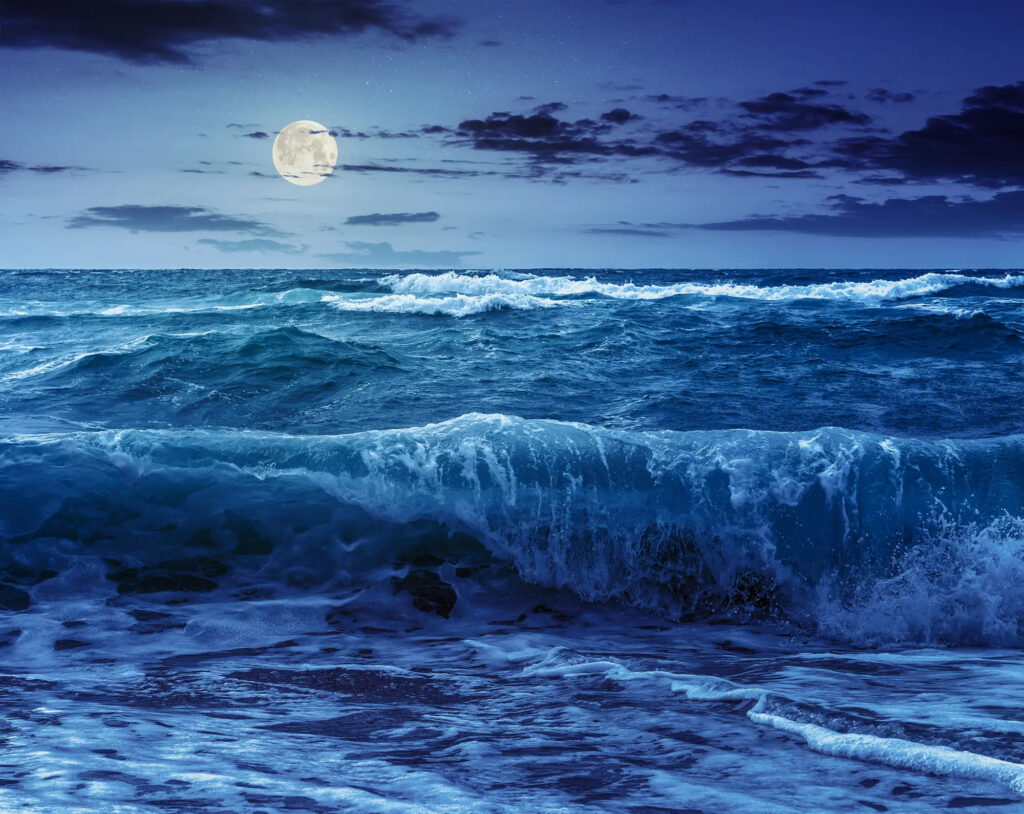
Reading:
The ocean is a vast and often daunting expanse, covering over seventy percent of our planet’s surface. Beneath the surface, the tide rises and falls, influenced by the gravitational pull of the moon and the sun. For curious explorers, the tide acts as both a hurdle and a guide to the treasures awaiting beneath the waves.
Marine scientists need to be savvy about the timing of the tides. They have developed traits of patience and precision to ensure their research in this challenging environment is successful. They dive deep into the ocean’s abyss to uncover its secrets, which could range from new species of fish to sunken ships holding stories of the past.
For centuries, the ocean has called to us, its depths holding a siren’s song for those with the heart to respond. The explorers who answer this call know the tide waits for no one and that understanding its pattern is essential. Those who can master the sea’s powerful rhythms find a new world bustling with life beneath the once-inscrutable blue surface.
Studying the ocean is an endless process, with each mission a testament to the dedicated souls who bring its wonders to light. The knowledge they glean not only enriches our understanding of marine biology but also improves our conservation efforts. With every species cataloged and habit studied, we learn how to better protect these vital ecosystems from threats above the surface.
The ocean’s tide is not just a phenomenon; it’s a testament to the powerful forces of nature that have shaped our world since time immemorial. As daunting as it is to face the vastness of the sea, it is also a source of inspiration, reminding us that there are still many mysteries left for us to explore.
Each expedition can feel like a binge of discovery, as scientists eagerly soak up new information. Those who study the ocean remind us that with knowledge and respect for nature’s rhythms, we can find wonders in the world’s daunting depths.
Reading-Checkup Quizzes:
- What does the tide in the reading passage represent for marine explorers? a. Just a natural occurrence. b. A source of power for ships. c. An obstacle and a tool in their exploration. d. A pattern that remains constant.
- According to the passage, what traits do marine scientists need to have? a. Worry and haste. b. Patience and precision. c. Tiredness and annoyance. d. Indifference and impulsiveness.
- What does the author suggest about the ocean’s mysteries? a. They are all discovered. b. They are a source of inspiration and there’s a lot left to explore. c. They are too daunting to explore further. d. They are not as interesting as land-based mysteries.
Discussion Questions:
- What is something new you’ve learned about the ocean from this reading that you find interesting or surprising?
- How can the daunting aspect of the ocean inspire people? (= Think about the concept of mysterious or unexplored places in the world, like the depths of the ocean. Why do you think people are drawn to explore these areas, and what personal qualities do you think are important for explorers to have?)
